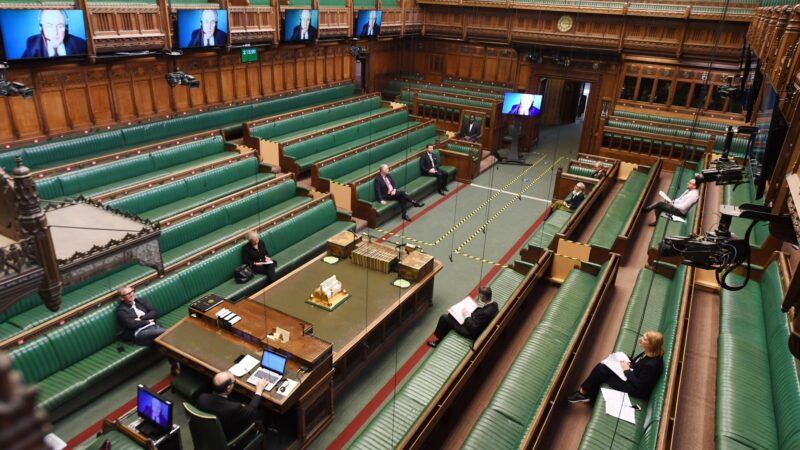
In the US, anti-lockdown rallies have seen protesters take to the streets to demand that businesses reopen and restrictions are lifted. These demonstrations have led to counter-protests by healthcare workers urging people to stay at home. All of this activity risks a surge in Covid-19 cases, of course. And yet President Trump has defended those not following federal distancing guidelines, and last week tweeted: “LIBERATE MICHIGAN!”, “LIBERATE MINNESOTA!” and “LIBERATE VIRGINIA, and save your great 2nd Amendment” (where there has been new gun control legislation). He just happened to pick out states with Democratic governors.
The UK has not seen that kind of extreme activity, thankfully. Measures such as levels of transport use show that compliance with coronavirus rules is high, and the message that we must stay home to protect the NHS is an effective one. But there is also a left-right political aspect to views on when restrictions should be eased here and how the lockdown should be implemented. In government, a political commitment to maintaining immigration controls is still informing the Covid-19 response in a counterproductive and harmful way, for example. Labour has reiterated its call for visa conditions preventing migrants in the UK from accessing public funds to be suspended during the crisis, but the government has simply dodged the question and referred to “anxieties within certain communities” when asked about the move.
The TUC has made an important intervention today by demanding that the government set up an independent, judge-led public inquiry by the end of the year. This would look into the “grotesque” failure to provide frontline workers with adequate personal protective equipment, the federation of trade unions says. Keir Starmer has so far preferred not to criticise decisions made in the early stages of the crisis, and the new Labour leader has resisted calls for either apologies or the launch of investigations. But the wider labour movement is applying the kind of pressure that is currently seen as too politically risky by the party leadership.
Starmer is perhaps most comfortable when assiduously scrutinising plans at the despatch box. As MPs return to parliament from Easter recess, he will have that opportunity once again. The virtual set-up will allow questions to be put to ministers via Zoom. There are now screens in the chamber and physical distancing markers have been laid down, but the Commons Speaker says there will be no advantage to being present in the chamber. The hybrid parliament will see ministers, their Labour opposites and a scattering of MPs turn up, with other parliamentarians contributing online. No scrutiny will be enabled of their pyjamas, however, as the rules for members’ dress remain in place. This is a fascinating experiment that could lead to modernising reforms in the long term.
If you’d like to look at some fantastic work produced by Labour-supporting graphic designers, a new artpack has been released that will be of interest. Labour Party Graphic Designers is distributing 18 original posters that celebrate key workers. You are free to download them – check out the artwork here.
Sign up to LabourList’s morning email for everything Labour, every weekday morning.



More from LabourList
‘A case for hope amid hard times’
Eluned Morgan splits with Sarwar and backs Prime Minister
‘Putting our values into action: Labour should make social security work for everyone who needs it’